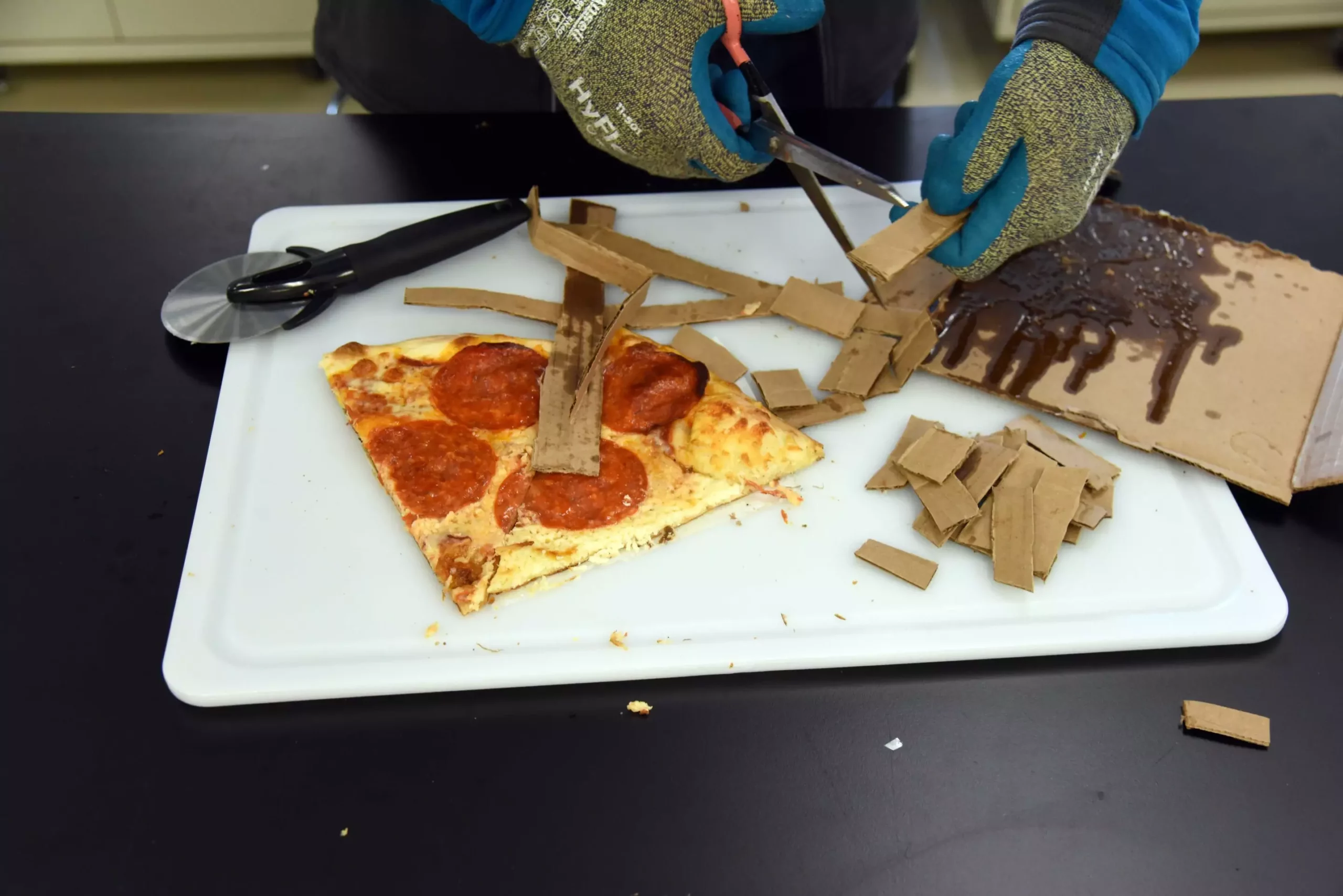Pizza boxes have long been a staple of American culture, with millions of Americans enjoying a slice of pizza every day. However, the environmental impact of pizza box waste has been a growing concern. Due to contaminants like grease and cheese, traditional recycling methods are not effective. This has led to a buildup of pizza box waste in landfills across the country.
The Study
Researchers at the Idaho National Laboratory have taken on the challenge of finding a solution to the pizza box recycling problem. Through a recent study published in the Journal of Cleaner Production, they have discovered a way to decontaminate cardboard using material separation capabilities. This breakthrough could not only make pizza boxes more eco-friendly but also have implications for other industries, including the military.
The research team, led by principal investigator Aaron Wilson, developed an experimental system using dimethyl ether (DME) to clean contaminated cardboard. This environmentally friendly chemical is used in refrigeration processes and has shown promising results in removing grease, cheese, and other contaminants from pizza boxes. By extracting the contaminants into separate fractions, the researchers were able to significantly improve the recycling process.
Benefits of DME Extraction
The DME extraction process has proven to be more efficient than traditional water washing methods. While water washing results in large volumes of wastewater and energy consumption, DME extraction operates in a closed loop system that recycles the solvent for cleaning new waste items. This scalability makes it a viable option for various industries, including the military.
Implications for the Military
The success of the pizza box cleaning study has paved the way for future projects involving waste conversion. Military bases could potentially convert their waste into usable resources like fuel, reducing the need for risky supply runs to deliver essential items to troops. The researchers are also exploring ways to make the system lighter for easy transport across rough terrain.
In addition to military waste repurposing, the DME extraction process could be applied to other industries, such as battery recycling. By separating liquid intermediates from solids, the process could lead to more efficient battery waste disposal. This aligns with the concept of a circular economy, where materials are reused for multiple extraction processes, promoting sustainability.
The groundbreaking study on pizza box recycling represents a step forward in addressing food container waste. By utilizing innovative material separation techniques, researchers have opened up possibilities for a more sustainable future. As the project continues to evolve, the potential impact on recycling practices across industries is immense.


Leave a Reply